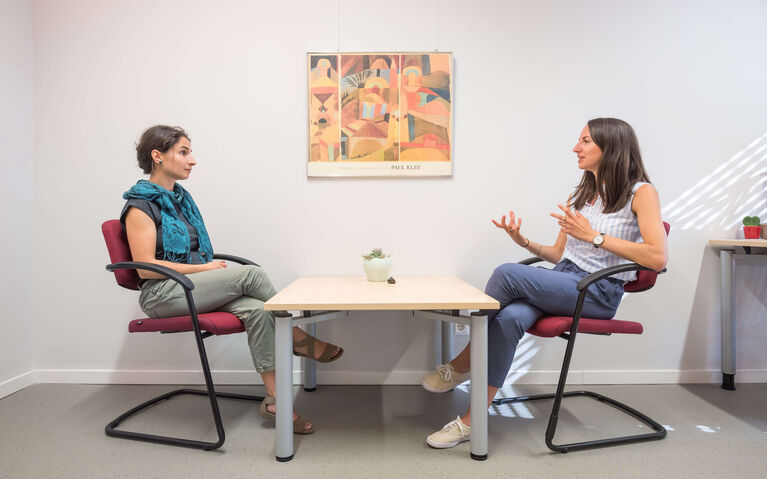Research
The CPM is an internationally renowned collaborative research center making major contributions to teaching, training and research of psychosocial health and illness.
Our research activities focus on psychotherapy, treatment mechanisms, collaborative care models sand targeted prevention. Within an interdisciplinary context the unifying dedication of CPM’s researchers is to translate insights from social neuroscience to interventions to improve patient care and quality of life. The overarching research agenda is to study the interconnected relationship between close social experiences and mental health, mediated through biological, behavioral, social and societal mechanisms. One common research topic of all departments and institutes is on the role of traumatizing childhood experiences, how they impact on personality development, mental and physical health and how they influence brain and body functioning. This is embedded into a comprehensive ecological paradigm of the recurrent interactions between subjective experience, psyche, brain, body and social environment.
The unique research activities of the CPM comprise
- (a) comprehensive standardized, manual-based coding of social interaction including mimics, gaze, linguistic analysis in laboratory and real-life environments,
- (b) detailed, transdiagnostic psychopathological assessment as well as deep phenotyping,
- (c) innovative methods from social neuroscience based on an excellent technical infrastructure (e.g. virtual reality, fMRI, EEG, hormone lab) and integrating artificial intelligence approaches on the multimodal systems level combined with
- (d) unique ecologically valid experimental paradigms and considering
- (e) the central role of hormonal processes buffering or aggravating neural risk circuits linking childhood maltreatment to mental and physical disorders.
- (f) Furthermore, CPM research is dedicated to a life-perspective of mental disorders and critical phases of transition, e.g. in early childhood and adolescence, and
- (g) the intensive crosstalk between mental and somatic disorders.
Our vision is to translate mechanistic insights into targeted treatments and environmental prevention and to evaluate their impact. Thereby, we integrate innovative digital assessments and interventions. To achieve high quality of mental health care, CPM has developed and implemented training programmes, including skills trainings for professionals in health care and child protection and supports health workers in reception centers for refugees.
Main research topics and projects
of the clinics and institutes:
- Department of General Psychiatry
- Department of General Internal Medicine and Psychosomatics
- Department of Child and Adolescent Psychiatry
- Institute for Medical Psychology
- Institute for Psychosocial Prevention
- ZPM Methods Peer Group for Young Researchers
Research Sections
An overview of the section can be found here:
Test persons
- Department of General Psychiatry
- Department of General Internal Medicine and Psychosomatics
- Department of Child and Adolesent Psychiatry
- Institute for Medical Psychology
- Institute for Psychosocial Prevention
Publications
- Department of General Psychiatry
- Department of Internal Medicine ans Psychosomatics
- Department of Child and Adolescent Psychiatry
- Institute for Psychosocial Prevention


